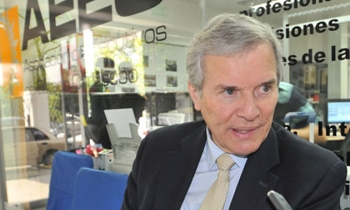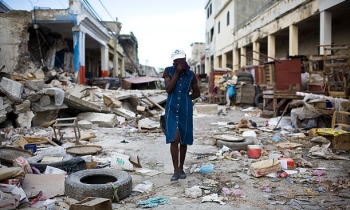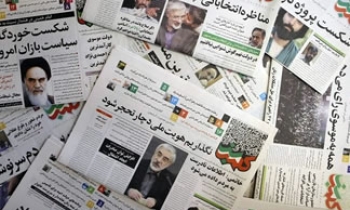Morocco has banned an issue of French magazine L'Express International, claiming it insults Islam in articles exploring the relationship between that religion and Christianity. Algerian and Tunisian authorities followed suit three days after the October 31 Moroccan decision.
Moroccan Information Minister Khalid Naciri said Sunday that he had no choice but to ban the current issue because of the offensive nature of the articles it contained, according to an Associated Press (AP) report. He said the kingdom's press code allows the government to shut down or ban any publication deemed to offend Islam or the king.
The cover of this week's L'Express is titled "The Jesus-Muhammad Shock" — also the title of a book by Christian Makarian, one of the magazine's chief editors. A ten-page article inside presented portraits of the founders of Christianity and Islam days ahead of a meeting in Rome of Muslim and Catholic dignitaries on the initiative of Pope Benoit XVI, to “promote dialogue" between the two monotheist religions.
Tunisia banned L'Express issue after officials said Monday that it "offended Muslim beliefs and feelings." A government official told Agence France-Presse (AFP) that article 25 of the Tunisian press code allows the country's interior ministry to ban the sale of foreign publications. Algerian officials also Monday said the cover story is "pro-Bible" and breaks Muslim rules by representing the face of Islam's prophet Mohammed, according to AP. Tunisian officials would not comment.
Naciri did not specify exactly what was considered offensive, but told AP that "our country should not be used by anyone to spread articles that could be prejudicial to our religion or undermine public order,"
A statement on the L'Express' website said the magazine did not understand Morocco's reaction, particularly because pains had been taken to adhere to Islamic norms, notably by covering the face of Mohammed with a white veil in side-by-side cover portraits of Jesus and Islam's prophet, in line with Islamic law, the AP report said. The French edition leaves the face uncovered.
The articles provide broad outlines of the two monotheistic religions. One article comparing Jesus and Mohammed quotes verses from the Quran that it says show that the Muslim holy book "justifies violence toward those who refuse to obey Muslim law." It says that Mohammed the pacifist and Mohammed the warrior are united in one figure.
“It is unfortunate that the communications ministry has one again chosen to resort to censorship to have a newspaper banned which was only bringing elements to the debate on an issue in the news that is of major interest to its Moroccan readers," Paris-based Reporters sans Frontières (RSF) said Monday. “This decision is all the more surprising since the Moroccan authorities never stop describing the kingdom as an historic place of dialogue and coexistence between cultures and religions".
“It is still more unfortunate that Algiers and Tunis decided to follow in Morocco’s footsteps,” RSF added, wondering “if the kingdom is in the process of becoming an example for the repression of press freedom in the region.”
The Moroccan authorities used Article 29 of the press code that authorises banning of publications “when they strike a blow at the Islamic religion, the monarchy, territorial integrity or respect for the king and public order”. The ministry employed this same prerogative against Moroccan weekly Nichane in December 2006, after it carried an article headlined “Jokes: how the Moroccans laugh about religion, sex and politics”. Nichane was seized again in August 2007, along with its French-language edition TelQuel, after it carried an editorial criticising a speech by King Mohammed VI. This issue also published articles dealing with “sex in Islamic culture”.
Morocco was ranked 122nd out of 173 countries in RSF's world press freedom index, released on October 22, 2008.










